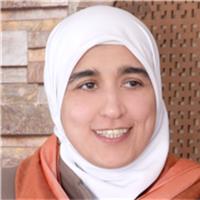بدأ البودكاست، أو ما كان يعرف بالتدوين الصوتي، في مطلع نشأته نتيجة تعاون مشترك بين ديف وينير وآدم كاري، كان ذلك في العام 2001، عندما تحدثا عن "طريقة فعّالة لإيصال الصوت عبر الإنترنت"، واعتبرا أنّ "أر.أس.أس" (RSS) هي المفتاح لذلك. غير أن اسم "بودكاست" استُخدم باعتباره مصطلحًا ذا مدلول في سبتمبر/أيلول من العام 2004 على يد آدم كاري. ومع نهاية العام 2005، سجّل قرابة الخمسة ملايين متابع اشتراكهم لمتابعة بودكاست واحد على الأقل، لتبدأ ثورة التدوين الصوتي باجتياح اهتمامات روّاد العالم الرقمي، الثورة التي تلقفها الصحفيون لتدوين أعمالهم واختيارها فضاءً جديدًا يتسع لمساحة الصوت على امتدادها واختلاف نغماتها.
يمتاز البودكاست بتحرّره من قيود النشر، وسرعة الوصول إليه، وسهولة تلقي محتواه، إذ ما تحتاجه فقط هو حاسة السمع في أي مكان وزمان، وهذا ما يشكّل بيئة مناسبة للصحافة الاستقصائية العربية، بحيث يصبح من السهل تدشين توثيق استقصائي صوتي بتكلفة مادية ومدة زمنية أقل مما يستدعيه التوثيق الاستقصائي المرئي، مع قدرة التدوين الاستقصائي السمعي على مواكبة المجريات التي تحتاج للتحقيق في حيثياتها حين وقوعها، الأمر الذي يُكسب التوثيق الاستقصائي السمعي ميزة الأسبقية، بالإضافة إلى التحكّم في مدة البثّ، مما يجعل وثيقة واحدة أو أيّا من أدلة التحقيق على قلة عددها، كافية لنشر بودكاست استقصائي حولها.
ورغم ذلك، فإن تحديات البودكاست الاستقصائي تكمن بداية في إعادة التقعيد لمفهوم التوثيق الاستقصائي الصحفي عربيًّا في ذهن المتلقي، فقد ساهمت مجموعة من الأعمال الاستقصائية العربية المرئية على ترسيخ الإبهار البصري كهوية للعمل الاستقصائي الصحفي. وعند الانعتاق من هذه المفاهيم المتعلقة بالصورة، يمكن تقبّل التوثيق الاستقصائي السمعي بسهولة كإحدى وسائل التوثيق الاستقصائي الصحفي. ومع اختفاء الافتتان بالصورة كعامل جذب للعمل الاستقصائي الصحفي، يرتكز العبء على الصوت وأدائه وصياغة المحتوى على أنّه ليس نصًّا لفيلم وثائقي أو تقرير إخباري يتآزر فيه الصوت مع الصورة لضمان وصول المحتوى بشكله الأفضل أو ما يُعرف بالكتابة للصورة، بل إنّ صياغة المحتوى الاستقصائي السمعي تعتمد على الإيجاز والصياغة الأقرب للمحادثة المباشرة مع المستمع، الذي يفرض على المدوّن الصوتي أن يعمل لكي ينجح في جذب اهتمامه من أولى دقيقتين، وربطه بأهداف الموضوع الاستقصائي من خلال لعب المدوّن لثلاثة أدوار، هي أدوار الراوي والمُحادِث والقاصّ، وذلك بالاعتماد على العبارات القصيرة، واختيار الأصوات الطبيعية المساندة في خلفية المقطع السمعي باتزان بما يتناسب مع المضمون، على أن يُستطاع تمييز مصدرها ومدلولها ودورها في المقطع بسلاسة. فمثلا، عندما تضيف أصوات أبواق سيارات وضجيج أزمة سير لغاية خلق حالة حية للمقطع السمعي فقط، فإن ذلك لن يؤدي الغرض، بل إنك ستعيد حصار الاستقصاء الصحفي السمعي في إطار التقرير الخبري الإذاعي المألوف. والأمر ذاته ينطبق على توظيف الموسيقى والمؤثرات الصوتية، فالبودكاست الاستقصائي ليس بثًّا موسيقيًّا ولا إذاعيًّا، بل بِنيتُه الصوت البشري.
أهم تجارب البودكاست الاستقصائي عالمياً
-
"Serial" الأعلى استماعاً على الإطلاق
بودكاست "Serial" الأميركي الذي انطلق عام 2014 يعدّ تجربة سبّاقة حققت أعلى متابعة على مستوى العالم فيما يتعلق بتحميل حلقاته، وهي السلسلة الأشهر عالميا، تقدّمه الصحفية الاستقصائية سارة كوينغ. وقد حاز على العديد من الجوائز العالمية الكبرى التي تُمنح في هذا المجال، واحتلّ المرتبة الأولى في تصنيف "تايم" (Time) لأفضل عشرة بودكاستات للعام الماضي. والجدير بالذكر أنّ أربعة من هذه المدونات السمعية العشر هي مدونات استقصائية، وقد نشرت صحيفة "ديلي تلغراف" مقالا يحمل عنوانه تساؤلا: كيف قلب "Serial" صناعة البودكاست رأسا على عقب؟ هذا السؤال ذاته طُرح في "هاف بوست" (HUFFPOST) في مقال بعنوان: "Serial".. لماذا حاز هذه الشهرة الواسعة؟ ومقالات أخرى عديدة حاولت الإجابة على هذا السؤال.
وعن أسباب نجاح هذا البودكاست، فيرجعه البعض إلى سببين، الأول موضوعه الاستقصائي المشوّق المتعلق بجرائم ذات طبيعة خاصة وكشف آلية تعامل القضاء الأميركي معها، والثاني هو صوت الصحفية الاستقصائية سارة ومستوى أدائها، حيث شكّا عاملاً رئيسياً للإدمان على استماع هذه السلسلة. كما لعبت المعايشة الصوتية دورها القوي من خلال طرح الأسئلة وردود الأفعال الشعورية التي يمكن لمسها في درجة صوتها وقدرتها على التحكّم في التعبير الصوتي، مما عزّز عنصر التشويق لمعرفة نهاية الحلقة. كما أنّ سارة تصيغ محتوى يعتمد على التصادم ومفاجأة المستمع، وتقديم حقائق وأجوبة غير متوقعة، في سرد أحداث مجريات التعامل القضائي الأميركي مع الجريمة موضوع الحلقة.
-
"Criminal".. من خمسين مستمعًا إلى البودكاست الحائز على جائزة أفضل وثائقي بعد عام واحد فقط على انطلاقته.
انطلق البودكاست "Criminal" عام 2014 في قرية "دريم" بولاية كارولينا الشمالية ليطرح قصص الجرائم الغريبة وكشف أسباب إقدام المجرم على فعلته. تقول مقدمة البرنامج فيبي جدج إنّها لم تكن تتوقع هذا النجاح الهائل لتدوين سمعي بدأ بجهود بسيطة وبتكلفة مالية محدودة للغاية، وتعبّر عن مقدار سعادتها عندما علمت أنّ حلقتها الأولى حمّلها خمسون مستمعًا، لتحقّق اليوم ملايين المتابعات السمعية. كما أن هذا البودكاست حاز عام 2015 على جائزة أفضل وثائقي في مهرجان الساحل الدولي للصوت.
وتعزو فيبي سبب هذا النجاح إلى أمرين: أولهما أنّ البودكاست لم يكن شبيهًا بشيء آخر، ولم يُستنسخ من برنامج أو بودكاست مُقارب له، بل هو في حدّ ذاته فكرة مُبتكرة. والأمر الثاني أنّها وُفقت بفريق عمل مؤمن للغاية بمشروع ورسالة هذا البودكاست الذي تقدمه للمستمعين.
لقد سبق أن شقّ الاستقصاء الصحفي العربي بأنواعه المختلفة طريقه في عالم الصحافة والتحقيق، لكنه ما يزال يحاول إبراز بصمة مختلفة له في عالم الاستقصاء الصحفي العالمي. هذه المحاولات تستحق أن يُضاف إليها محاولات تأسيس منصّات قوية وراسخة متخصصة في الاستقصاء الصحفي السمعي العربي، حتى وإن تعثرت في بداياتها كما هو الحال في أيّ تجربة تعلّم حتى تُصبح ممارسة ومن ثمّ صناعة عربية خالصة تحمل خصائصها التي تمكّنها من المنافسة عالميًّا.
المراجع:
1- Tricks of the Podcasting Masters, Rob Walch, Mur Lafferty, Page 12
3- https://time.com/5455070/best-podcasts-2018-2/
7- https://transom.org/2018/podcast-mindset-part-1/








































